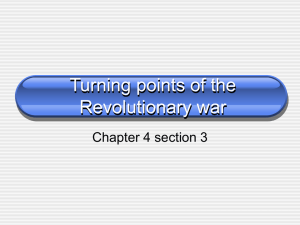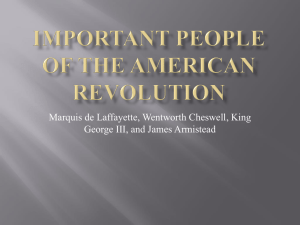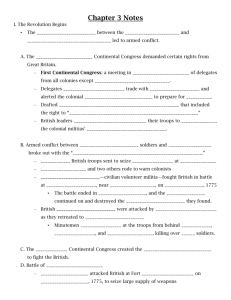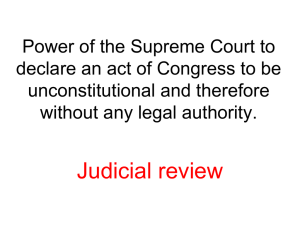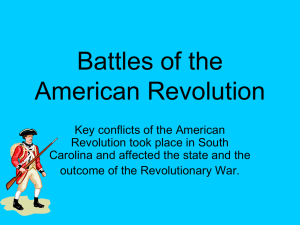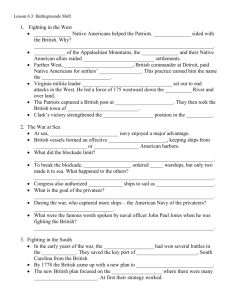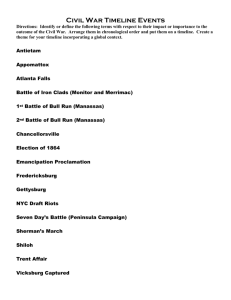read the 235th Anniversary of Musgrove`s Mill Keynote Speech
advertisement
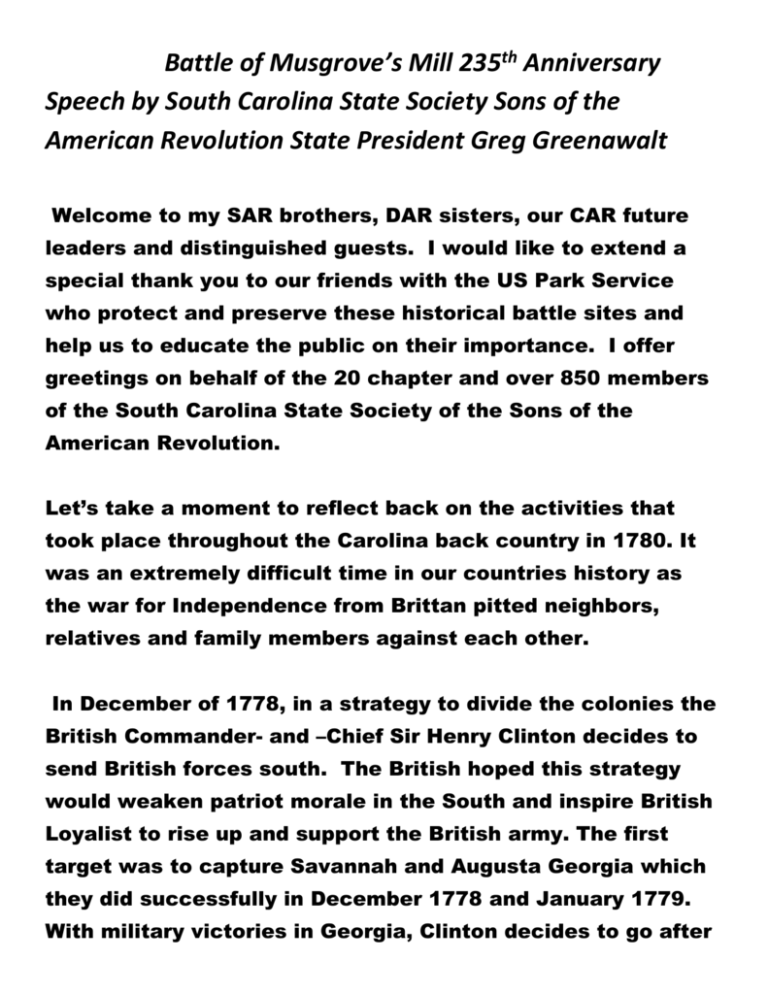
Battle of Musgrove’s Mill 235th Anniversary Speech by South Carolina State Society Sons of the American Revolution State President Greg Greenawalt Welcome to my SAR brothers, DAR sisters, our CAR future leaders and distinguished guests. I would like to extend a special thank you to our friends with the US Park Service who protect and preserve these historical battle sites and help us to educate the public on their importance. I offer greetings on behalf of the 20 chapter and over 850 members of the South Carolina State Society of the Sons of the American Revolution. Let’s take a moment to reflect back on the activities that took place throughout the Carolina back country in 1780. It was an extremely difficult time in our countries history as the war for Independence from Brittan pitted neighbors, relatives and family members against each other. In December of 1778, in a strategy to divide the colonies the British Commander- and –Chief Sir Henry Clinton decides to send British forces south. The British hoped this strategy would weaken patriot morale in the South and inspire British Loyalist to rise up and support the British army. The first target was to capture Savannah and Augusta Georgia which they did successfully in December 1778 and January 1779. With military victories in Georgia, Clinton decides to go after Charleston, the South’s first city, and set sails from New York with 13,500 men on December 26, 1779. The Revolutionary War in the South was quite different from the Northern Campaign. American trained continental soldiers and regiments were scarce until October 1780 when General Washington appoints Nathanael Greene as his trusted General to lead the Continental army in the South. The British still occupy New York City and have over 16,000 Redcoats based there which causes Washington and a large contingency of American Continental soldiers to stay in the north and keep the British contained to their Manhattan stronghold. The War in the Carolina Back country was predominately fought with poorly trained back woods militia regiments. Some of the Militia leaders had gained military experience by fighting with the British in the French in Indian wars that took place in 1756- 1765, such as Francis Marion, Daniel Morgan and Thomas Sumter. The war pitted neighbors, family members, slaves and local Indian tribes against each other as any particular community would have both American Patriots and British Loyalist living in close proximity to each other. Most do not realize that there were over 400 Revolutionary War battles fought in the Southern Campaign. Many earlier American Revolutionary War educational books and material left out the major battles that took place in the South, and minimalized the important contributions to America’s Independence made by the southern militia patriots. The British had a fatal flaw in their strategy, they grossly under estimated the resolve and fighting spirit of the Carolina back country patriots. Many were Scots-Irish immigrants that arrived in Charleston by boat and followed wagon and Indian trails to establish their homesteads in the Carolina backcountry. Most left their homelands to distance themselves from the tyranny of British rule and had little patience for continued British oppression in their new homeland. The British assault on the Carolinas begins on April 1, 1780 with the Siege of Charleston British Commander Sir Henry Clinton with 13,500 British troops defeats Patriot General Benjamin Lincoln. 5,266 American troops were captured resulting in one of the largest surrenders in US Military history. April 14, 1780 Battle of Moncks Corner South Carolina takes place resulting in a British victory for Banastre Tarleton who defeated Isaac Huger On May 24, the Battle of the Waxhaw’s or (Buford’s Massacre) occurs in Buford S.C. Where Bloody Ban the Butcher Tarleton massacres over 150 American Patriots under the command of General Abraham Buford On June 20 The Battle of Ramseur’s Mill happens in Lincolnton N.C. A Patriot Victory for Francis Locke who defeated John Moore On July 12, 1780 Battle of Williamson Plantation or (Huck’s Defeat) occurs at McConnell’s S.C. A Patriot Victory for Col. William Bratton who defeated British Captain Christian Huck August 1, the Battle of Rocky Mount at Great Falls S.C. A British victory for George Turnbull who defeats Thomas Sumter August 6, the Battle of Hanging Rock, Heath Springs S.C. A British victory for John Carden over Thomas Sumter On August 16,The Battle of Camden, resulting in a major British Victory for General Charles Cornwallis over Patriot General Horatio Gates Just two days after the Patriot loss at the Battle of Camden on August 18th Lieutenant Colonel Banastre Tarleton, and 350 Loyalists located a Patriot force commanded by Brigadier General Thomas Sumter, “The Gamecock” about 40 miles from Camden at Fishing Creek . Tarleton caught the Americans totally unprepared, killing 150, wounding and capturing 300 and freeing 100 British prisoners. Loyalist losses were just 16 killed. This battle made Tarleton, in eyes of the British, a national hero. Coming just after the Patriot loss at Camden, However, that very same day, a second battle gave the Patriots a spark of hope, here at Musgrove’s Mill. Patriot Colonels Elijah Clarke, Isaac Shelby and James Williams commanded a militia force of 200 men that repelled an attack by 500 Loyalists, killing 63, wounding 90 and capturing another 70. Patriot losses were only 4 killed and 12 wounded, resulting in a battle that could have cemented Patriot disaster but instead ended in a Patriot victory. In the wake of General Horatio Gates major defeat at Camden and the loses at Fishing Creek the victory here at Musgrove’s Mill heartened the Patriots and served as evidence that the South Carolina Backcountry could not be held by the British. Ladies and Gentlemen we pause today at this most important Revolutionary war battle site not to remember that we are free men and women, but to ask how we gained that freedom. Our liberty comes at a very high price. 25,000 Patriots lost their lives during the War for Independence including over 12 brave American Patriots who were killed here on this battle site, men who laid down their lives for a cause much greater than their own. Many more lost their homes, their land, and their livelihood for the freedoms that we enjoy today. This ladies and gentlemen is a story that we must not forget and for the sake and future of our great nation, it is our obligation to ensure that the story of America’s fight for independent and what occurred here at the battle of Camden is passed along from generation to generation. Today we pay tribute to those fallen heroes who gave their lives for the principles of liberty and freedom. May God bless our fallen patriots who have made the ultimate sacrifice for their country and all of our veterans who have bravely fought for the cause of liberty and American independence and May God Bless America!
